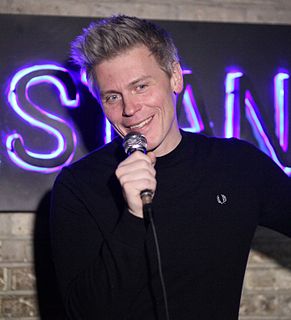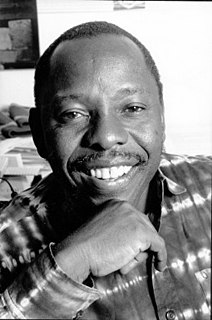A Quote by Akhil Sharma
Ernest Hemingway has been the most important influence on me as a writer. But at a certain point as a writer, I realized that he was writing about good people doing good things. This did not match my experience of life and so I found my sentences stretching and becoming less plain.
Related Quotes
Do you think that Hemingway knew he was a writer at twenty years old? No, he did not. Or Fitzgerald, or Wolfe. This is a difficult concept to grasp. Hemingway didn't know he was Ernest Hemingway when he was a young man. Faulkner didn't know he was William Faulkner. But they had to take the first step. They had to call themselves writers. That is the first revolutionary act a writer has to make. It takes courage. But it's necessary
My best experience as a writer was working with Michael Ondaatje. He let me dismantle his novel, reimagine it, and still had dinner with me and gave me good notes. But the best thing about writing has been the writer's life, the sense of being expressed, the ownership of the day, the entirely specious sense of freedom we have, however slave we are to some boss or other. I wouldn't trade it for any other life.
My abject hatred of actors and the acting world. I went to college as an actor, and halfway through, I switched to playwriting and directing. Then I spent a couple years working in publishing, doing some freelance journalism for The Village Voice and Musician magazine. I thought my life was going to be as a writer, but then I realized I missed performing, so I got into comedy. It was a nice combination of things I was sort of good at. I was a pretty good writer and a decent actor, but I didn't really like acting, and I didn't have the discipline to be a writer.
I was in the fantasy. I was selling myself on the fantasy as I was doing it. It never occurred to me. I did take notes, but just because I am a writer. I've been a writer since I was five. You don't have any sort of outlandish, shocking, extraordinary, horrifying experience without writing it down, because I know and knew that you forget things. No matter how outrageous and amazing and extraordinary and seemingly unforgettable an experience is, it's kind of like a dream. It will erode inevitably, for me.
There are certain writers I can't read when I'm trying to write because their voices are so distinct. Cormac McCarthy, he's the most different writer from anything I've ever written, but there's something about those really spare sentences that is just tough - it would be too much of an influence. Grace Paley is my favorite writer. Her stuff is so voice-driven, when I read her a lot I want to make my writing more voice-y and dialogue-heavy. I love a lot of stuff in translation.
I got so discouraged, I almost stopped writing. It was my 12-year-old son who changed my mind when he said to me, "Mother, you've been very cross and edgy with us and we notice you haven't been writing. We wish you'd go back to the typewriter. That did a lot of good for my false guilts about spending so much time writing. At that point, I acknowledged that I am a writer and even if I were never published again, that's what I am."
Every writer knows that when you're imitating somebody - you know, you're sounding like Faulkner - you're doing pretty good, but your life in Hoboken isn't Faulkneresque. So you get that kind of shortfall between the actual experience of the writer and the things he's hungry to express and the voice itself.
I think it's especially important for an editor to say what he's enjoying. For a novelist to be told, midstream, what he's doing right can actually influence the unwritten parts of a novel in a positive way - praise helps a writer know what's good about what he's written, what's interesting and exciting, and what to work for in writing the conclusion.
The most important thing for me is that I've used my talents as a writer to enable the Ogoni people to confront their tormentors. I was not able to do it as a politician or a businessman. My writing did it. And it sure makes me feel good! I'm mentally prepared for the worst, but hopeful for the best. I think I have the moral victory.



































